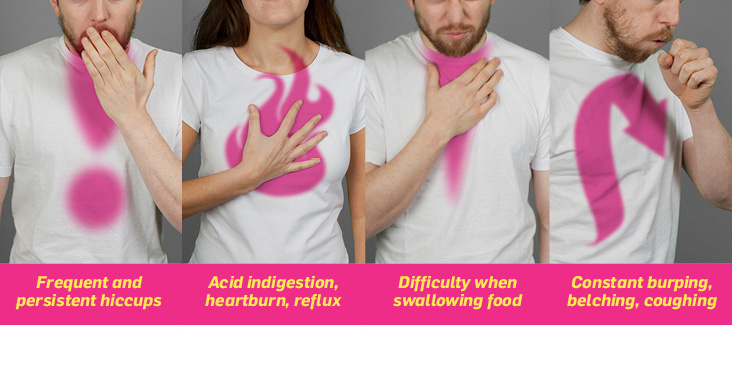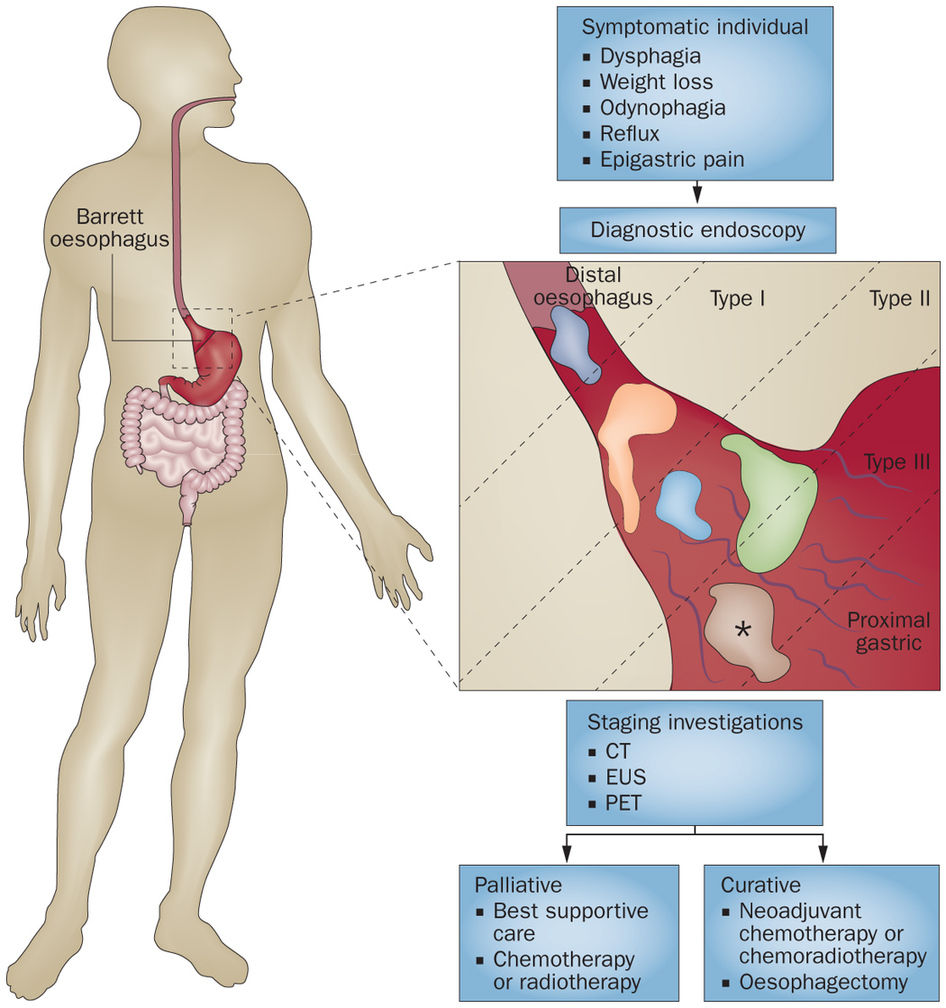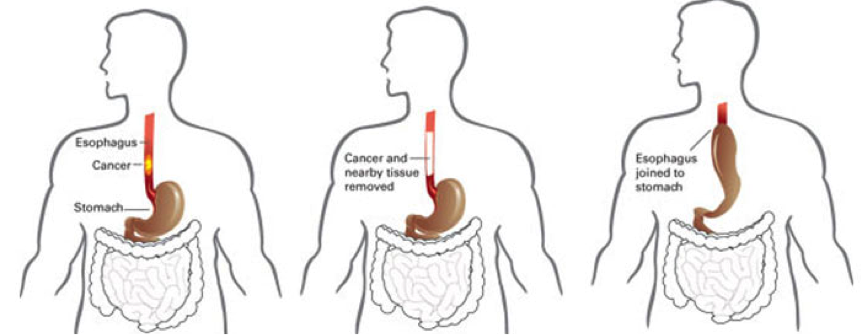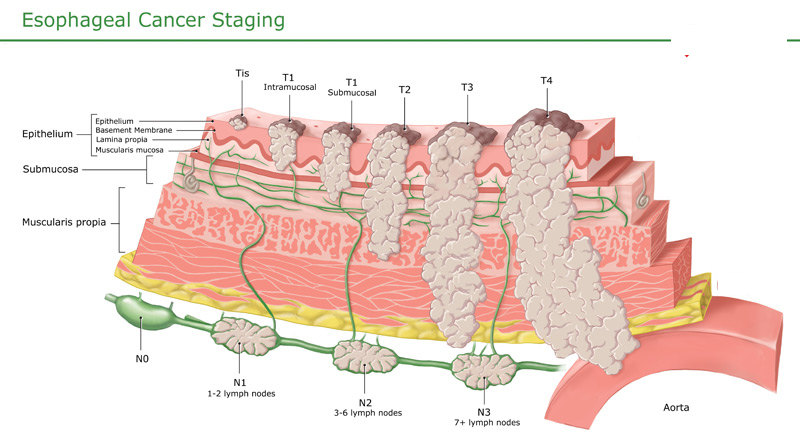PILONIDAL ABSCESS
January 11, 2018Oesophagus is the pipe which takes food from the mouth to the stomach. It usually affects people above the age of fifty-five years. Since the outcome of oesophageal cancer is not good, anyone suspected of Oesophageal Cancer should be diagnosed at the earliest.
For instance, one with a new onset of dysphagia of less than fifty-five years of age need to be diagnosed.
Like any other cancers, Oesophageal Caner arise from the innermost cell lining of the Oesophagus. In upper, two-third of Oesophagus is usually Squamous cell cancer while in the lower, one-third of Oesophagus is Adenocarcinoma.
There are numerous risk factors for Oesophageal cancer:
- Age: Common in people less than fifty-five years of age
- Diet: High fat or processed food are the risk factors
- Smoking
- Alcohol
- Where we live: Common in China
- GERD/GORD: Long term infalmmation can lead to cancer in theone-third where initially the cells change nature because of reflux of acid (Barrrett’s Oesophagus). One in hundreds of these conditions can turn to cancer.
- Chemical carcinogens: Long term exposure to chemical carcinogens (Specific to India like Tobacco/Gutka/Thambaku)
Symptoms of Oesophageal cancer include:
- Difficulty in swallowing (Dysphagia): Commonest symptom. Seventy-five percent Oesophagus has be occluded by the Oesophagus for one who experiences Dysphagia. Hence, more than fifty-five percent of people have advanced diseases at the time of diagnosis.
- Vomiting: Especially after food
- Painful swallowing (Odynophagia)
- Weight loss
- Vomiting blood (Haemetemesis)
- Hoarse voice

Confirming whether one has Oesophageal Cancer is done by Gastroscopy (Type of Endoscopy) and biopsy. Once the cancer is confirmed with biopsy one has to be assessed for stage of the cancer which is usually done by CT scan of chest, abdomen and pelvis. One might also need Endoscopic Ultrasound or PET CT and this would be decided by the treating specialist on individual basis.
One or combination of above tests would tell us whether the cancer is confined to Oesophagus or it has spread to other parts. It would also tell us to which part of the body cancer has spread to. This process is called staging. Treatment of the cancer depends on the stage of the cancer.
 **remember each case is different and you might need two or three tests before staging is completed. This is done keeping in mind the patient’s best interest in mind as staging absolutely determines the way in which one’s condition is treated. **
**remember each case is different and you might need two or three tests before staging is completed. This is done keeping in mind the patient’s best interest in mind as staging absolutely determines the way in which one’s condition is treated. **
Before one is taken for surgery, one is fully assessed for fitness, for surgery as Oesophageal surgery is a major surgery and risks include risk to life, significant post of ICU stays, MI, DVT, PE, Anastamotic leak.
If one is diagnosed at an early stage (Cancer confined to Oesophagus) then treatment is aimed to cure the cancer. This depends on the type of cancer and treatment can be in the form of surgery or radiotherapy & chemotherapy.
 If cancer has spread locally then neoadjuvant chemoreadiotherapy is advised to see the response of cancer. If after successful completion of neoadjuvant chemo-radiotherapy local disease resolves or responds favourably then in select cases, surgery is done.
If cancer has spread locally then neoadjuvant chemoreadiotherapy is advised to see the response of cancer. If after successful completion of neoadjuvant chemo-radiotherapy local disease resolves or responds favourably then in select cases, surgery is done.
In advanced cases or if one is not fit for major surgery, then palliative treatment may be the only option where the aim will be to keep one comfortable for rest of the life.
**In my opnion most of advanced cancers tend to come back after
 surgery. **
surgery. **
If one is not fit for surgery/radiotherapy/chemotherapy and if it is not beneficial, then one can have stent put in to expand the narrowing allowing to have food. In some cases, a special tube might be put into stomach to feed (PEG TUBE).
Unfortunately, most cases tend to present in advanced cases and curing one from Oesophageal Cancer might prove to be impossible.
Conclusion:
In my opinion, anyone less than fifty-five years of age with new onset of acidity like symptom needs to have Gastroscopy (endoscopy) to rule out Oesophageal Cancer.
**NOTE**Gastroscopy is a simple procedure associated with minimal cost.
**NOTE** Gastroscopy need not be repeated for at least two years, if previous endoscopy is normal as one cannot develop cancer within two years. **
